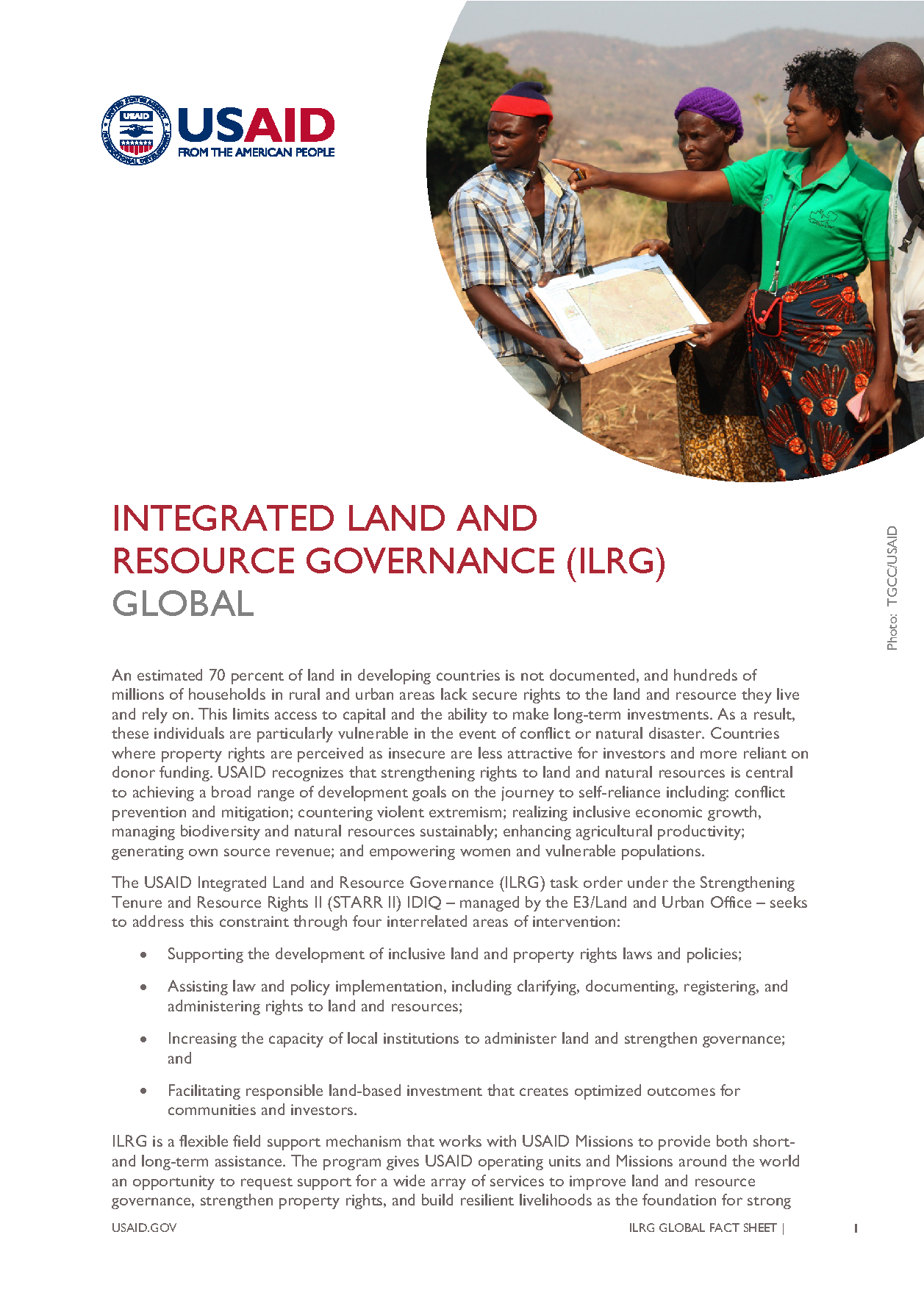Speeches Shim
BACKGROUND
An estimated 70 percent of land in developing countries is not documented, and hundreds of millions of households in rural and urban areas lack secure rights to the land and resource they live and rely on. This limits access to capital and the ability to make long-term investments. As a result, these individuals are particularly vulnerable in the event of conflict or natural disaster. Countries where property rights are perceived as insecure are less attractive for investors and more reliant on donor funding. USAID recognizes that strengthening rights to land and natural resources is central to achieving a broad range of development goals on the journey to self-reliance including: conflict prevention and mitigation; countering violent extremism; realizing inclusive economic growth, managing biodiversity and natural resources sustainably; enhancing agricultural productivity; generating own source revenue; and empowering women and vulnerable populations.
The USAID Integrated Land and Resource Governance (ILRG) task order under the Strengthening Tenure and Resource Rights II (STARR II) IDIQ – managed by the E3/Land and Urban Office – seeks to address this constraint through four interrelated areas of intervention:
• Supporting the development of inclusive land and property rights laws and policies;
• Assisting law and policy implementation, including clarifying, documenting, registering, and administering rights to land and resources;
• Increasing the capacity of local institutions to administer land and strengthen governance; and
• Facilitating responsible land-based investment that creates optimized outcomes for communities and investors.
ILRG is a flexible field support mechanism that works with USAID Missions to provide both short- and long-term assistance. The program gives USAID operating units and Missions around the world an opportunity to request support for a wide array of services to improve land and resource governance, strengthen property rights, and build resilient livelihoods as the foundation for strong economic growth, stability, resilience, and self-reliance. ILRG’s services have been used to support a number of US government strategic foreign assistance initiatives and earmarks, including democracy and rule of law; gender equality and women’s empowerment; Feed the Future; conflict mitigation and management; economic growth; biodiversity and natural resource management; and global climate change. A common approach is for the mechanism to work with a Mission to undertake assessments, and subsequently develop activities to address land and resource governance constraints.
PROGRAM INFORMATION
ILRG’s initial engagements have been focused on three countries: Ghana, Mozambique, and Zambia. In Ghana, the project collaborates with the private sector (Hershey’s) to test a farm rehabilitation and land tenure strengthening model to increase cocoa productivity and reduce deforestation around smallholder cocoa farms. In Mozambique, the project supports communities to document their land rights and subsequently negotiate fair agreements with private sector agribusiness. In Zambia, the project supports the land policy process, customary land administration and service delivery, capacity-building for civil society and government, and natural resource governance and tenure around protected areas to improve wildlife management. In 2019, ILRG is expanding to India through a partnership with PepsiCo on the social and productivity impacts of increasing women’s engagement in potato supply chains.
The ILRG consortium includes seven partners: Tetra Tech (prime contractor); Columbia University; Land Alliance; Landesa; Terra Firma; Innola Solutions; and Winrock International. The program will also work with in-country partners through a $2.5 million grants under contract component.


Comment
Make a general inquiry or suggest an improvement.